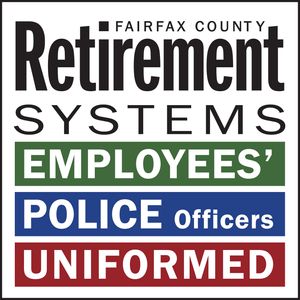Board Education Policy
General
Trustees agree to develop and maintain an adequate level of knowledge and understanding of relevant issues pertaining to the administration of the system throughout their terms on the Board. Trustees are encouraged to pursue appropriate education across a range of pension-related areas, including:- Governance and fiduciary duty;
- Investment policy and asset allocation;
- Benefits administration;
- Actuarial policies and funding;
- Technology;
- Regulatory and legal issues; and
- Financial and accounting standards and practices.
Recommended Training Goal
Trustees shall secure, over time, a meaningful level of understanding in each of the topic areas listed above and other pertinent topics through presentations made at regular meetings of the board, training programs provided to the board as well as through attendance at conferences. Trustees are encouraged to attend conferences that address pension-related topics other than investments.As possible, Trustees are encouraged to participate each year in at least eight hours of investment, fiduciary, and pension administration training. This can be met by participation in training included in regular Board meeting agendas, participation in an initial orientation, participation in virtual training, attendance at educational conferences, or at planned educational retreats.
Presentations at Board Meetings
The Executive Director shall canvass the Board to identify topics of interest to include in regular Board meeting agendas. When possible, the Executive Director will arrange for outside experts and staff to present on these topics of interest and others of value to Trustees.Orientation Program
A formal orientation program, covering the general topic areas outlined in Paragraph 2 above as well as any other pertinent topics, shall be developed by the Executive Director for the benefit of new trustees. Prior to attending their first meeting of the Board as a trustee and to the extent practicable, new trustees shall be invited by the Chair or Executive Director to attend a meeting of the Board or a standing committee as an observer. New trustees shall, as soon as possible, and under the direction of the Executive Director, be:- Briefed on the history and background of the system and the agency;
- Briefed on current issues before the board;
- Introduced to senior management;
- Provided a tour of the system’s offices;
- Briefed on their fiduciary duties, conflict of interest guidelines, financial disclosure requirements and other pertinent laws and regulations; and
- Provided with:
- A Trustee Reference Manual (listed in Appendix 5);
- A copy of the Investment Policy Manual;
- A listing of upcoming, recommended educational opportunities; and
- Other relevant information and documentation deemed appropriate by the executive director or the chairman.
The Executive Director shall periodically review and, if necessary, update all orientation material and supply each trustee with those updates. A master copy of the Trustee Reference Manual shall be available for use by trustees at the Agency’s headquarters.
Participation in Virtual Education
A virtual pension trustee educational system, BoardSmart, is being implemented and will include training classes, talks, and reference documents on a wide array of topics of interest to public pension boards. This will be another means for Trustees to obtain the training and education that they need.Attendance at Conferences and Educational Events
The Executive Director shall maintain a list of recommended conferences and association meetings, based on the feedback of trustees and staff who have attended the conferences. As part of the operating budget, the Executive Director shall make every effort to ensure the availability of resources for trustee education and equitable availability of conferences to all trustees.A trustee, who wants to attend a conference or association meeting that is not on the recommended list of conferences and association meetings or take a related education course and wishes for the tuition and related expenses of the meeting or course be paid by the system, must file a written request with the Chair and the Executive Director. If the request is approved, all travel arrangements shall be made by the Executive Director’s designee in accordance with County policies set forth by the Department of Finance. Reimbursement for tuition and related expenses shall be paid in accordance with the County policies set forth by the Department of Finance. The request must be submitted within a reasonable time before the scheduled conference, meeting or course for a decision to be made, preferably 30 business days in advance, and should include a copy of the program or syllabus, justification, duration and estimated costs.
Trustees may attend up to two conferences outside of the metropolitan Washington, D.C. each year. Trustees may attend one university-sponsored or similar certified educational course per term of office.
